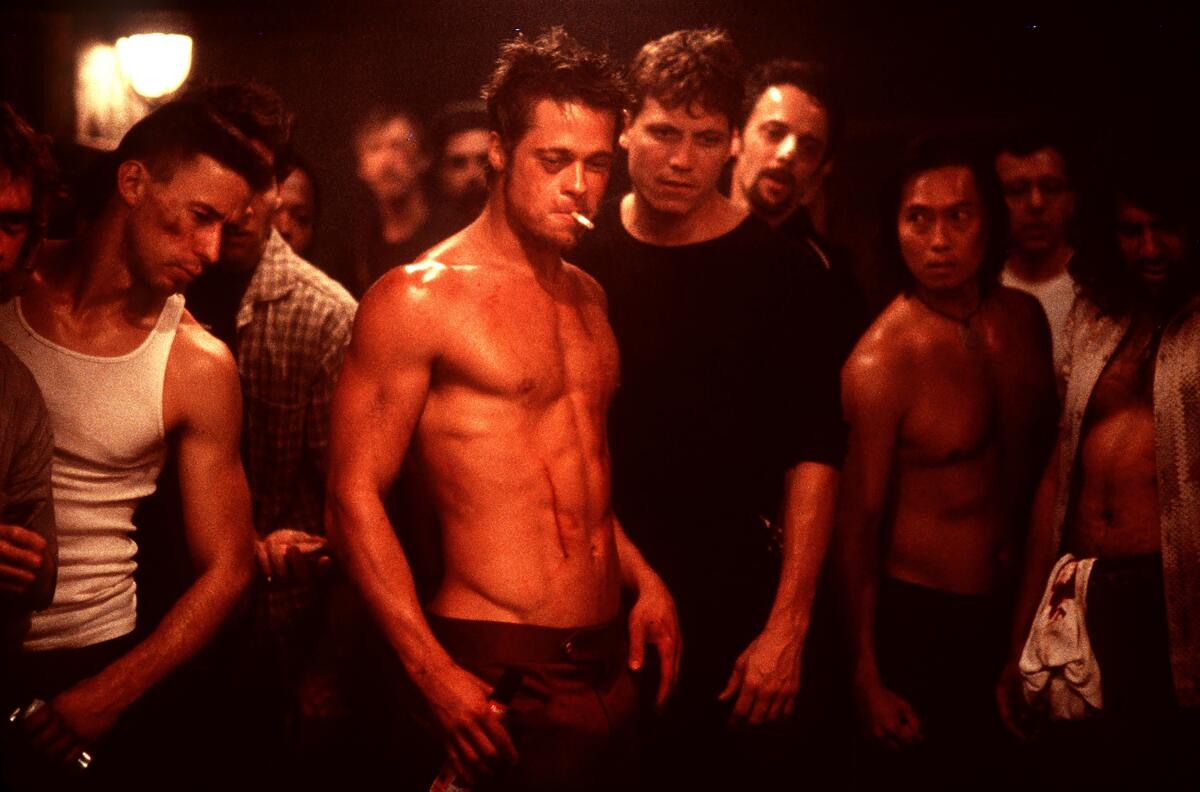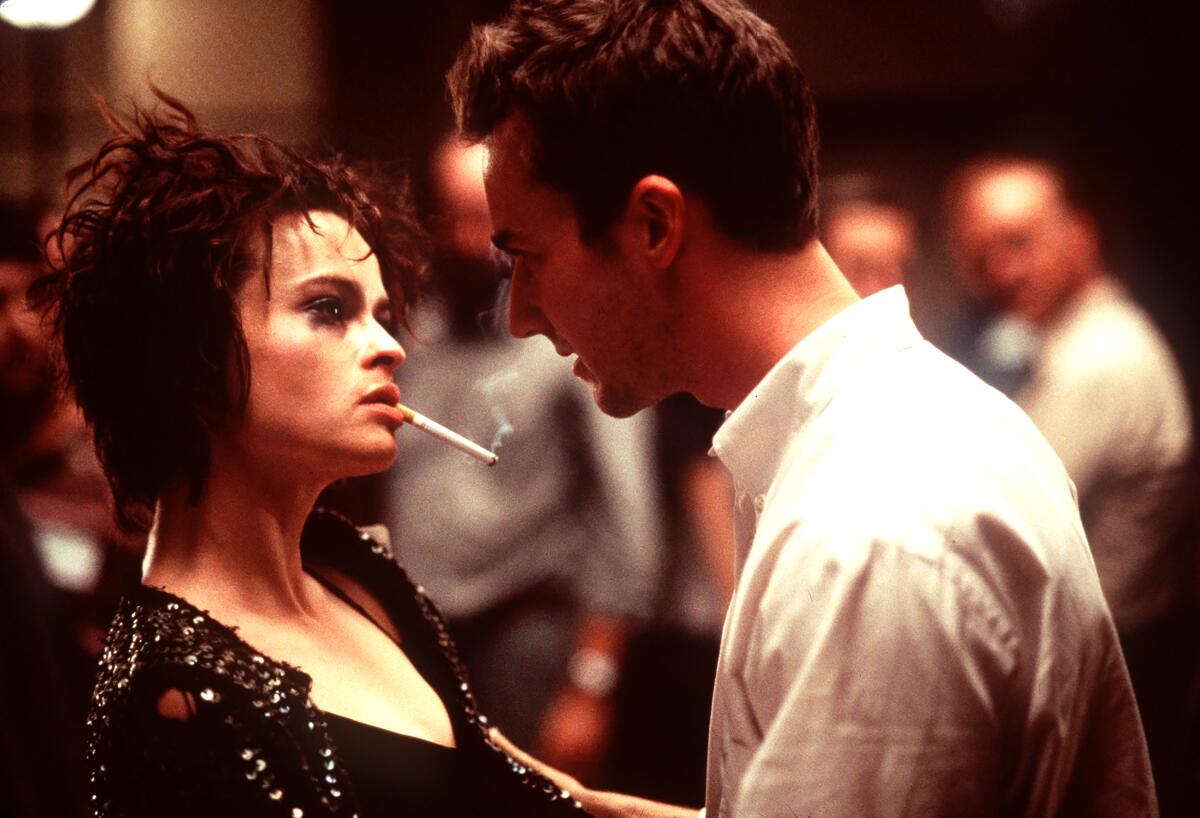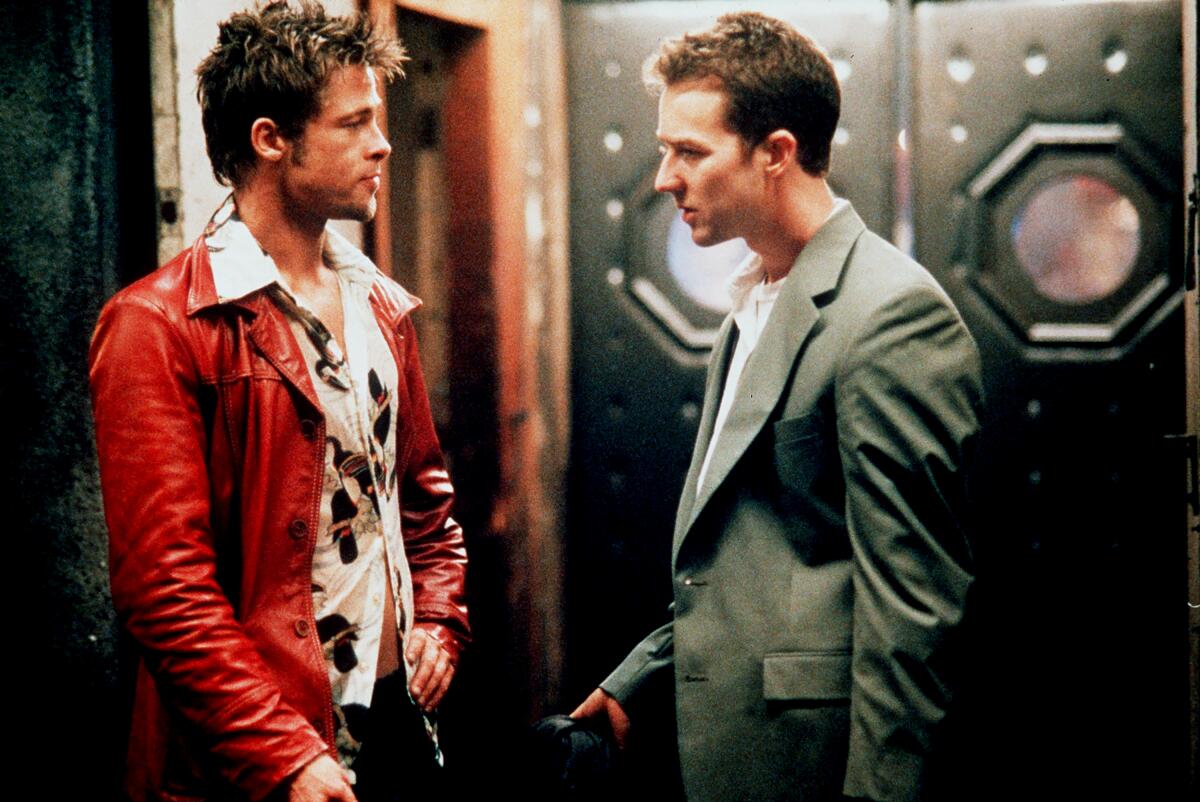David Fincher ‘not responsible’ for incels co-opting ‘Fight Club’: ‘We didn’t make it for them’

- Share via
Director David Fincher didn’t make “Fight Club” for incels, but that hasn’t stopped them from co-opting the 1999 psychological thriller.
The acclaimed director spoke with the Guardian for a profile published Friday, and the sexually frustrated radical right’s affinity for “Fight Club” came up. “I’m not responsible for how people interpret things,” Fincher said, adding that the film is viewed differently when watched through a modern lens. “Language evolves. Symbols evolve.”
When the Guardian’s Steve Rose pressed him further, saying the flick has become a touchstone for the far right, an apparently exasperated Fincher said, “OK, fine. ... It’s one of many touchstones in their lexicography.
“We didn’t make it for them, but people will see what they’re going to see in a Norman Rockwell painting, or [Picasso’s] ‘Guernica,’” the director continued. “It’s impossible for me to imagine that people don’t understand that Tyler Durden is a negative influence. People who can’t understand that, I don’t know how to respond and I don’t know how to help them.”

“Fight Club,” adapted from the 1996 Chuck Palahniuk novel of the same name, flopped at the box office, grossing only $37 million domestically on a $63-million budget.
Palahniuk wrote for The Times in 1999, “Parts of ‘Fight Club’ have always been true. It’s less a novel than an anthology of my friends’ lives. I do have insomnia and wander with no sleep for weeks, like Jack. Angry waiters I know mess with food. They shave their heads. My friend Alice makes soap. My friend Mike cuts single frames of smut into family features. Every guy I know feels let down by his father. Even my father feels let down by his father.”
‘Fight Club,’ alternating between sheer tedium and churning violence, has a bigger misguided idea at its core.
The reviews were scathing, but the film ultimately became a cult favorite, especially among teenage boys and young men coming of age in the early aughts. Former Times film critic Kenneth Turan wrote in 1999, “‘Fight Club,’ a film about men who like to fight, is an unsettling experience, but not the way anyone intended. What’s most troubling about this witless mishmash of whiny, infantile philosophizing and bone-crunching violence is the increasing realization that it actually thinks it’s saying something of significance. That is a scary notion indeed.”
In one of Brad Pitt’s most quotable scenes, which has seemed to resonate with a generation of men who are especially vocal on the discussion board Reddit, Durden addresses the seething, sweaty, riled-up club members who have gathered in a basement. “Man, I see in Fight Club the strongest and smartest men who’ve ever lived. I see all this potential, and I see squandering. G—, an entire generation pumping gas, waiting tables; slaves with white collars.

“Advertising has us chasing cars and clothes, working jobs we hate so we can buy s— we don’t need,” he continued. “We’re the middle children of history, man. No purpose or place. We have no Great War. No Great Depression. Our Great War’s a spiritual war ... our Great Depression is our lives. We’ve all been raised on television to believe that one day we’d all be millionaires, and movie gods, and rock stars. But we won’t. And we’re slowly learning that fact. And we’re very, very pissed off.”
The director’s single-minded attention to detail helped make ‘Zodiac’ a compelling look at a serial-murder case.
In 2018, Palahniuk told the Guardian that the book was previously quoted by fans of Neil Strauss’ “The Game,” a guide to picking up women for emotionally unattached sex.
“It’s fascinating that the group that can’t get laid is now adopting the same language,” he said at the time. “It shows how few options men have in terms of metaphors: a skimpy inventory of images. They have ‘The Matrix’ — there’s a lot of red pill, blue pill stuff — and they have ‘Fight Club.’ The only other thing is ‘Dead Poets Society,’ where men go into a cavern and say poems to each other, and they’re not going to adopt that.”
More to Read
Only good movies
Get the Indie Focus newsletter, Mark Olsen's weekly guide to the world of cinema.
You may occasionally receive promotional content from the Los Angeles Times.









